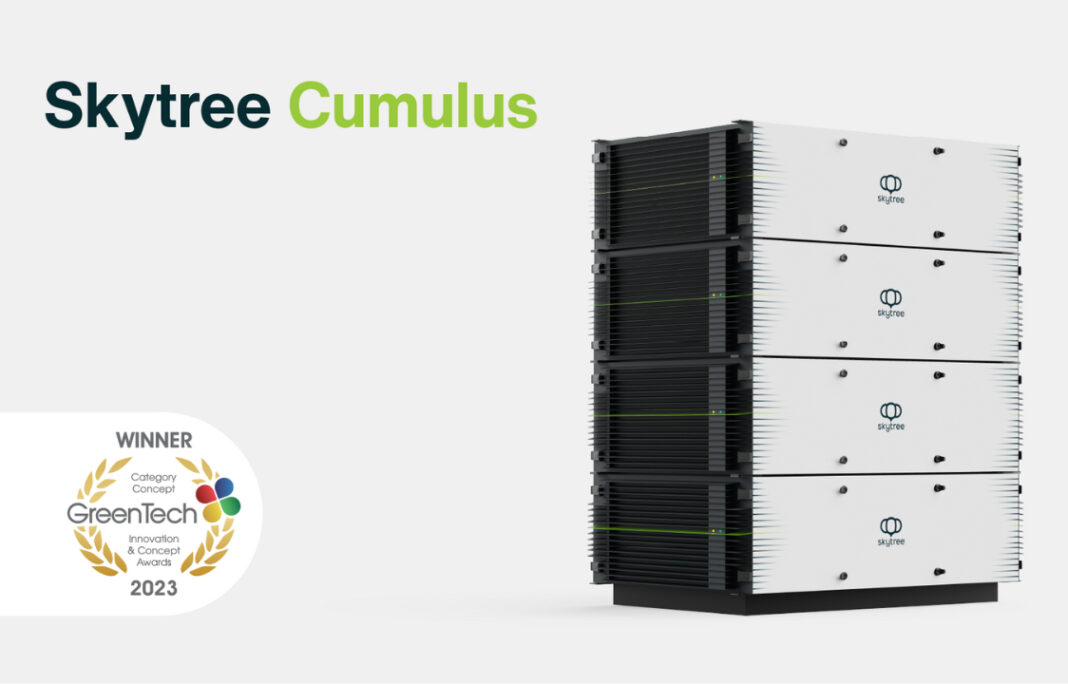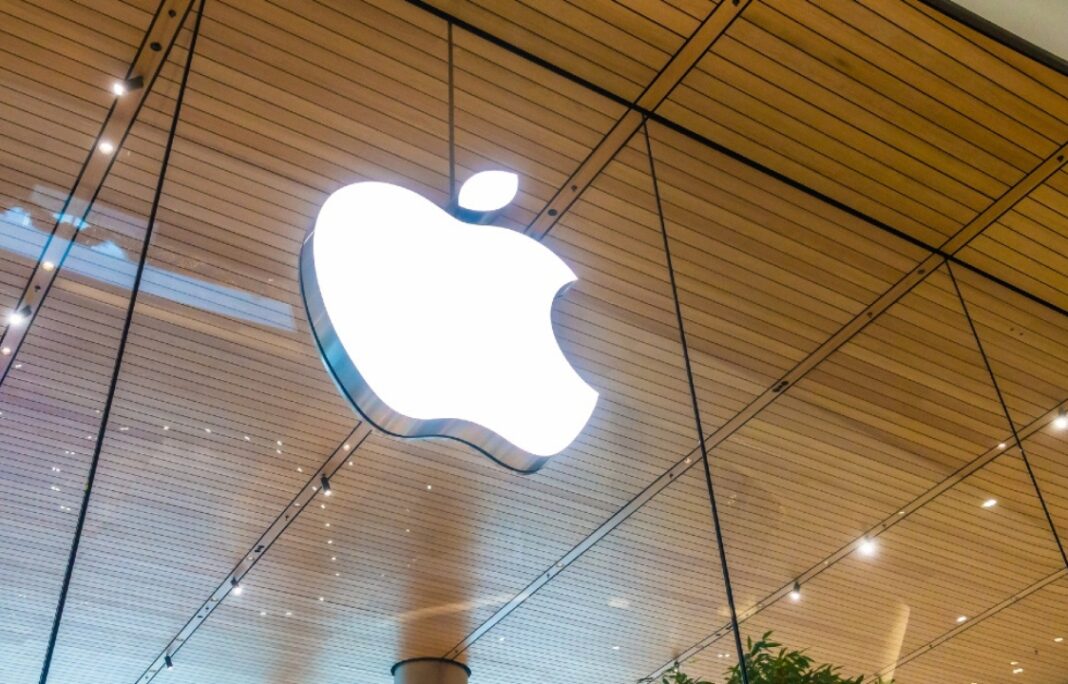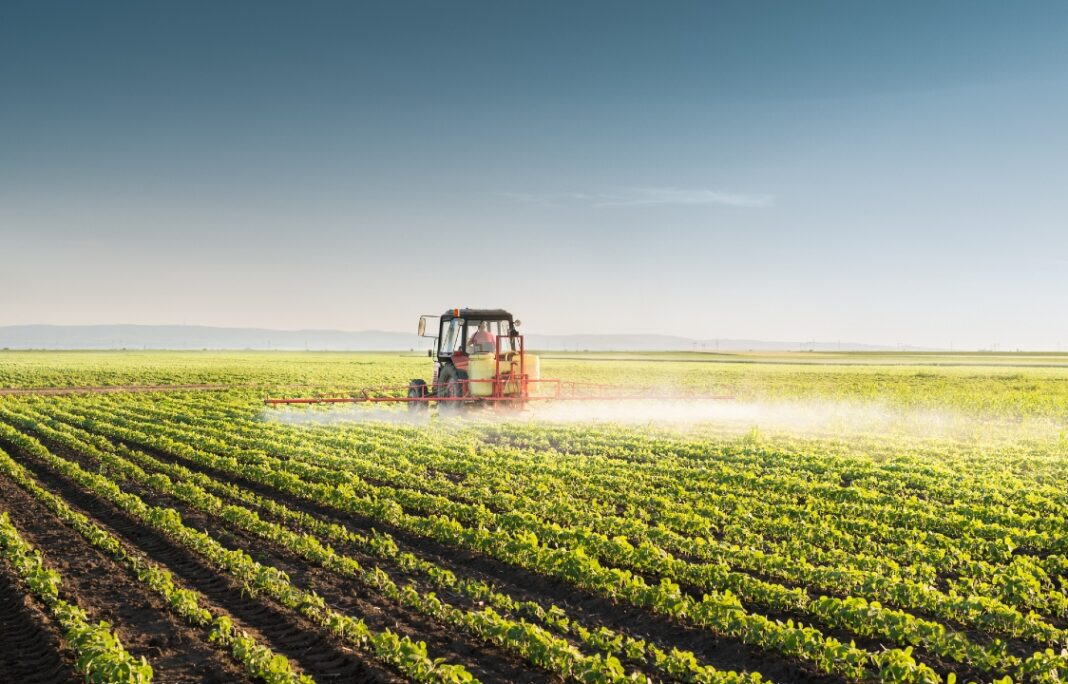Amsterdam-based Skytree, an early-stage climate tech developer combating climate change through CO2 capture and reutilisation solutions, has unveiled Skytree Cumulus, its first Direct Air Capture (DAC) modular unit.
Rob van Straten, Skytree CEO says, “This is an incredibly exciting moment for Skytree as we move forward with the commercialisation of our first unit for onsite carbon capture and reutilisation. By enabling the generation of CO2 onsite at farms and greenhouses, we are taking a significant step forward in helping CEA businesses reduce their carbon footprint and transition away from the fossil fuel industry as a source for CO2 supply.”
“Atmospheric CO2 – reimagined”
Founded in 2014 by Max Beaumont, Skytree uses direct air capture (DAC) technology to harvest CO2 from the surrounding air.
The company has introduced a technology with over a decade of research behind it, initially developed for use by astronauts on the International Space Station. This technology allows for on-site CO2 generation across multiple industries, including indoor farming, greenhouses, and mineralisation processes.
The company has registered 17 patents, in 5 patent families across US, Europe, and China and is ready to monetise the technology through multiple use cases.
By eliminating the reliance on fossil fuel-based industrial operations and the need to transport CO2, Skytree’s innovation addresses environmental concerns and promotes sustainable practices.
What will Skytree Cumulus offer?
This technology captures CO2 from the air and is designed for use in controlled environment agriculture (CEA) businesses, such as vertical farms and greenhouses. The captured CO2 can be utilised by indoor farmers and greenhouse growers in the production of food, algae, vaccines, and flowers.
Skytree’s first modular unit, Skytree Cumulus, can supply up to 10 kg of CO2 daily, offering a dependable and cost-effective solution while mitigating procurement and transport issues.
Skytree Cumulus is available for ordering with the first units to ship in early 2024. Additional units can be added to meet higher CO2 demands.
Rob van Straten says, “CEA businesses sourcing CO2 from the fossil fuel industry may be surprised to learn that every step of the process – from capture to cleaning to liquifying to storing in cylinders and then transporting to farms – adds up to 50 per cent harmful emissions.
“Every ton of CO2 captured at an oil refinery can lead to 1.5 tons of emissions released back into the atmosphere. We’re providing CEA businesses the opportunity to operate independently of the oil and gas industry while enjoying guaranteed access to carbon dioxide, all without the headaches of cost increases and supply chain challenges, or having to deal with the ordering and handling of metal cylinders,” adds van Straten.
Introduction of Pioneer Programme
In addition to their product launch, Skytree has introduced the Pioneer Programme, which provides early adopters with a special opportunity to access Cumulus and DAC technology at a discounted rate for a limited period.
Participants in this program will enjoy priority delivery when Cumulus units are shipped.
Skytree is expanding its carbon capture technology beyond its debut unit by developing a larger DAC unit capable of generating up to 400 kg of CO2 per day.
This move is aimed at enabling the transition to sustainable practices in building materials and other hard-to-decarbonise industrial sectors, reducing dependence on carbon dioxide sourced from fossil fuels. The larger unit is expected to be available in the second half of 2024.






